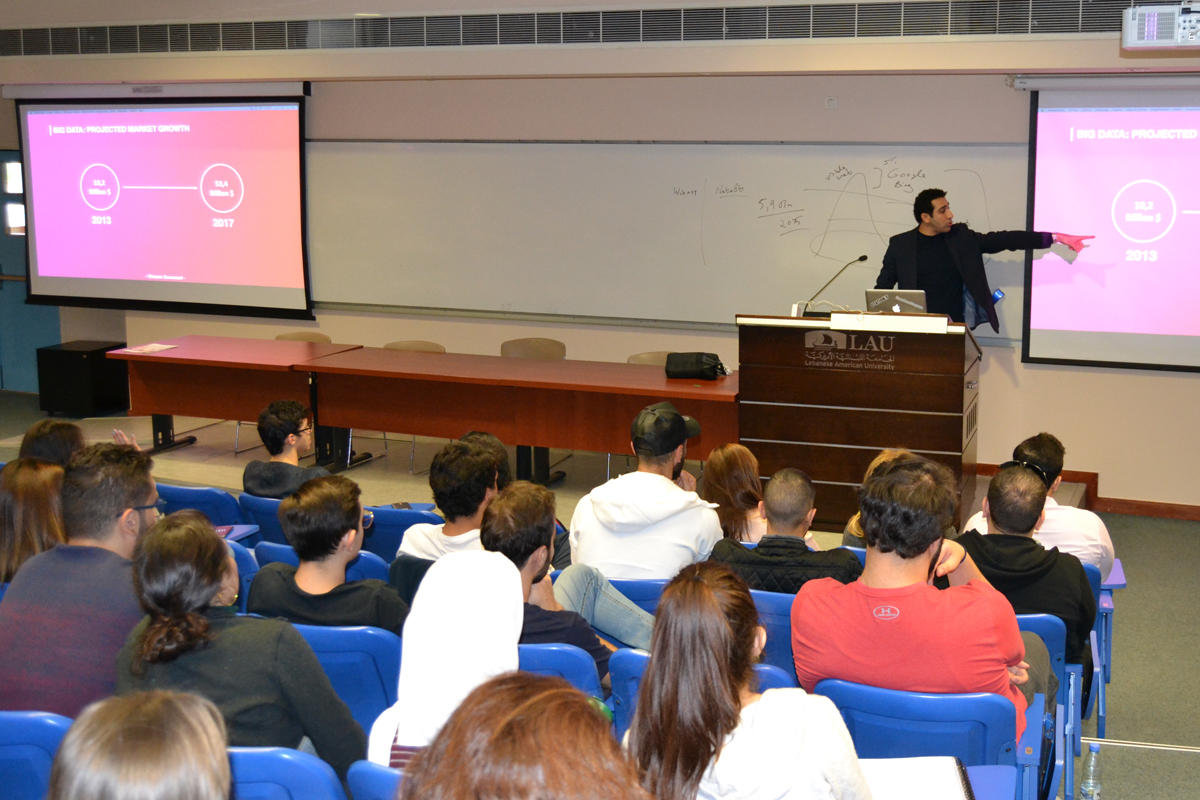Demystifying Big Data
How can organizations use data for marketing and growth?
How can organizations best market to a digital audience? What strategies increase a company’s profile in a crowded market? And what on earth is growth hacking?
All these questions – and more – were addressed at a seminar hosted by the Hospitality Management and Marketing Department with special guest speaker Wissam Sammouri, data mining specialist, consultant, university lecturer and co-founder of the company Pixis.
Sammouri spoke about data-driven digital marketing and how to leverage information gleaned from data mining to make strategic choices. “Classical digital marketing in the era of social media, lack of time, and instant decision making is quickly turning data-driven,” he said.
He used case studies to “demystify the role of data in driving business and marketing decisions” and taught techniques in growth hacking, which is, incidentally, a process of experimentation across segments to pinpoint the most efficient ways to grow a business.
“Growth hacking does not describe a specific method,” he said. “It is rather a philosophy and a lean approach that combines marketing tactics and product development, inspired by data and analytics as well as constant testing and refining.”
The lecture also shed light on the importance of forward-thinking in order to grow a business amid stiff competition. “With fierce competition in all fields, businesses have to look for out-of-the-box methods to accelerate their growth process and, in turn, secure a profitable and scalable position in the market,” said Sammouri.
“Growth hacking has been the buzzword for any successful business in this past decade,” said Associate Professor of Marketing and Chair of the Hospitality Management and Marketing Department Maya Farah.
“A growth hacker knows how to translate audience data to improve marketing strategies, ultimately driving traffic and boosting business profits,” she added.
Using real-world applications and case studies, the talk equipped students with an eye-opening futuristic vision on how data is transforming businesses worldwide. It also sparked their awareness on this topic and encouraged them to acquire data-related skills and seek more knowledge, especially if they are planning on an entrepreneurial career.
“Such lectures add a new perspective of education by exposing students to real-world experiences from professionals,” commented Dr. Omar Itani, assistant professor of marketing. “They introduce students to new trends in the workplace and give them the opportunity to create community relations with speakers.”
In conclusion, Sammouri stressed that data-related skills are becoming a must-have for marketing students. “As a student, you should learn how to analyze data using built-in software or tools for valuable correlations and insights,” he said. “This information can then be visualized and used to define, tweak or enhance targeted marketing strategies, with the aim of increasing client acquisition, activation or revenue.”
